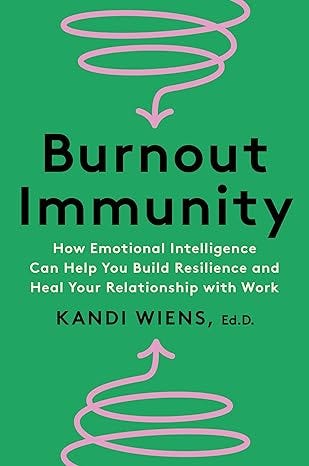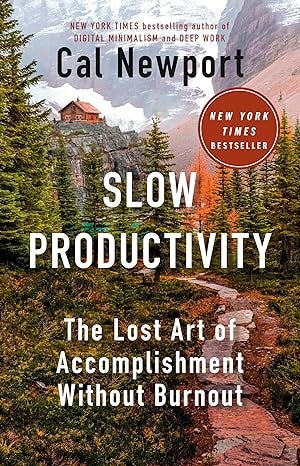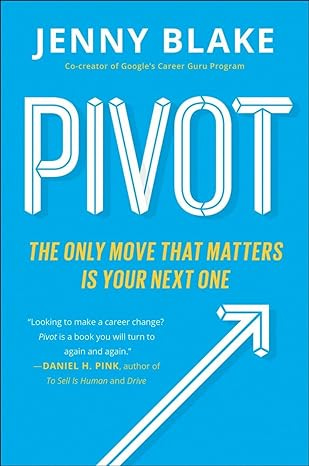On negotiation, burnout, travel and career pivots
Part 1 of my answers to our first ever "Ask Alison Anything"
I’m back! Did you miss me?
Thanks to all of you who submitted a question to me. There were so many of them that I will have to answer them in multiple posts - this is the first.
It took longer than I expected to get back to you, mainly because my videographer got the flu. But I’m hoping the wait for these answers has only served to escalate your suspense and excitement.
In this post, I cover:
Negotiating for more or different comp
Burnout - causes and cures
Travel tips
Pivoting careers
Before we jump in to the first five answers, a few notes:
I did a mix of video and written responses, just to keep it interesting.
I paraphrase the questions for brevity, and answer each separately so you can choose to read/watch only those that interest you.
I have decided that it is not a good use of my time to argue with my videographer about his caption choices, like the complete absence of any punctuation (much like his school assignments). And I hope you enjoy the video that abruptly cuts off just shy of five minutes, just because his captioning software allegedly can’t handle longer videos? Moral of the story - Just be happy there are any captions at all, as I’ve learned to be.
And now, without further delay…
Question 1: Negotiating for more compensation
Wendy and Mel both asked about negotiating for more pay or a different pay structure in organizations that claim not to negotiate compensation.
Also, keep in mind that salary isn’t the only thing you could and should think about negotiating.
I highly recommend you check out Kathryn Valentine’s list of 75 things you can negotiate at work, available on her company website, Worthmore. This will sign you up for her newsletter, which you’ll thank me for.
Question 2: Burnout causes and cures
J.B. noted burnout is on the rise and asked who’s most affected, how managers can prevent it on their teams, and recommendations to learn more.
Who’s most affected?
Women! Also younger people are more burned out than older people, according to the most recent version of this survey. But did I mention women?
Women show up in every survey as the most depleted group.
Why?
More demands on their time at work, especially non-promotable work (work that helps others but does nothing to advance your own career), as brilliantly reported in The No Club.
More demands on their time at home, which you can read all about in Fair Play and also this article that sparked a ah-ha moment for my husband, appropriately titled “No, you can’t just ask your wife to make a list.”
Uncivil treatment at work, often exacerbated when women are given power, but not status. This was the subject of my last post, which you can check out here if you missed it.
What can managers do?
Spread the love when it comes to office housework - give the necessary, but mundane, tasks to the senior men, not just the junior people and the women.
Get to know your team. Ask them what depletes them and what energizes them. If someone loves midday runs to recharge, do what you can to avoid meetings over lunch. If they are drained by endless meetings, let them opt out of the least urgent ones.
Identify team vital signs, a brilliant idea I learned from Chris Littlefield’s recent LinkedIn post and this video. I won’t steal his thunder, but he has a great list of questions to ask your team to identify what it looks like when you are individually and collectively at your best, so you can quickly identify when things start to slip.
Ask them directly if they are burned out. Tell them to come to you the second they start to feel that way - and then do something about it. On this point, I really like this use of a quantitative metric that Brene Brown uses in her marriage. This could easily be adapted to a team, asking each person to share their energy reserve from 0 to 100. When one team member’s number is low, the others step in to help. If the entire team is depleted, then an all-hands meeting is in order.
But don’t just sit around and wait for someone else to save you
As a negotiation professor, I’d be remiss if I didn’t also mention that advocating for a sustainable working situation is no different than advocating for a promotion. It would be nice if someone just walked in your office and gave it to you, but that’s not often the case.
No one cares about your life more than you do, so it’s never advisable to simply wait for people to ask you if you are burned out or if you want to be paid more. That’s a recipe for misery.
And people aren’t mind readers - they often have no idea how burned out you are because you’re hiding it well.
So don’t suffer in silence.
Advocate for what you want!
I was recently talking to a good friend who is excelling in a new senior role, but she is so burned out in the first six months that she’s talks about quitting every time I see her.
I asked her a question that I encourage you to ask yourself if you’re feeling burned out at work:
“If you went to your boss tomorrow and quit, would your boss be surprised?”
“Oh yes. Shocked,” she responded instantly.
If you’d say the same, then you haven’t effectively advocated for yourself yet. Other people don’t yet know how burned out you are, which means there is zero chance anything is going to change.
So speak up! Let them know how you are feeling and, most importantly, a few specific, actionable steps they could take to help you. This applies at work, but also at home with your family.
Maybe they can’t or won’t help. But knowing that is still a better alternative to your current state.
As Jada Pinkett Smith wisely tweeted1:
Have the courage to say what you need in the moment…Two things will happen: You’ll either get what you need or realize that the source you are asking doesn’t have the capacity to deliver. Both are gifts.
Where to learn more?
In addition to the resources above, here are two hot-off-the-presses books you may want to check out:
Burnout Immunity by Kandi Wiens, which just released yesterday!
Slow Productivity: The Lost Art of Accomplishment without Burnout by Cal Newport
Question 3: Travel tips
Jean asked about my packing tips, specifically making smart outfit choices to save space.
Here’s the travel rack I referenced. Lifechanging, trust me.
Question 4: Pivoting careers
Kelly was curious about pivoting to a career in organizational psychology, and my journey.
To learn more about how I became a professor, which was not my childhood dream, you can scroll to the bottom of my Substack About page.
If you’re considering a pivot, to organizational psychology or any other career, my answer is the same: Find someone with the job you want and ask them how they got there.
This is a great use of LinkedIn.
Scroll your contacts looking for people who do want you want to do.
Send them a message telling them that they have your dream job, and you’d like to learn how they got there.
When you talk with them, ask them, “What’s one thing I can do to increase my chances of getting into this industry?”
Then do what they say.
Repeat with the next person.
In addition, look for small opportunities to get any relevant experience. For example, if there’s anyone in your organization who does anything related to organizational psychology, volunteer to help them on a project. Or ask the people who have your dream jobs if you could assist their work in any way.
And if you’re looking for something to read, check out Pivot by Jenny Blake.
And that’s a wrap, friends!
Part two of my responses should be in your inboxes next week, so start getting excited!
Cheers to success, friends!








Team carry-on forever! Loved your tips. The other thing I've learned to do for longer trips is to try on every outfit *before* it goes in the suitcase. Takes some time on the front end but ultimately saves so much time and space. This is a tip I got after working with a stylist to pack for a 2-week trip that started with my family in Philly and included multiple book-related events in Europe. (Also, hot tip I discovered recently: if I'm not wearing it at home, I'm not going to want to wear it when I'm traveling, either...so just do yourself a favor and put it in the donate pile now).
These nuggets are valuable, Alison - and thanks for including the travel ones! ;)